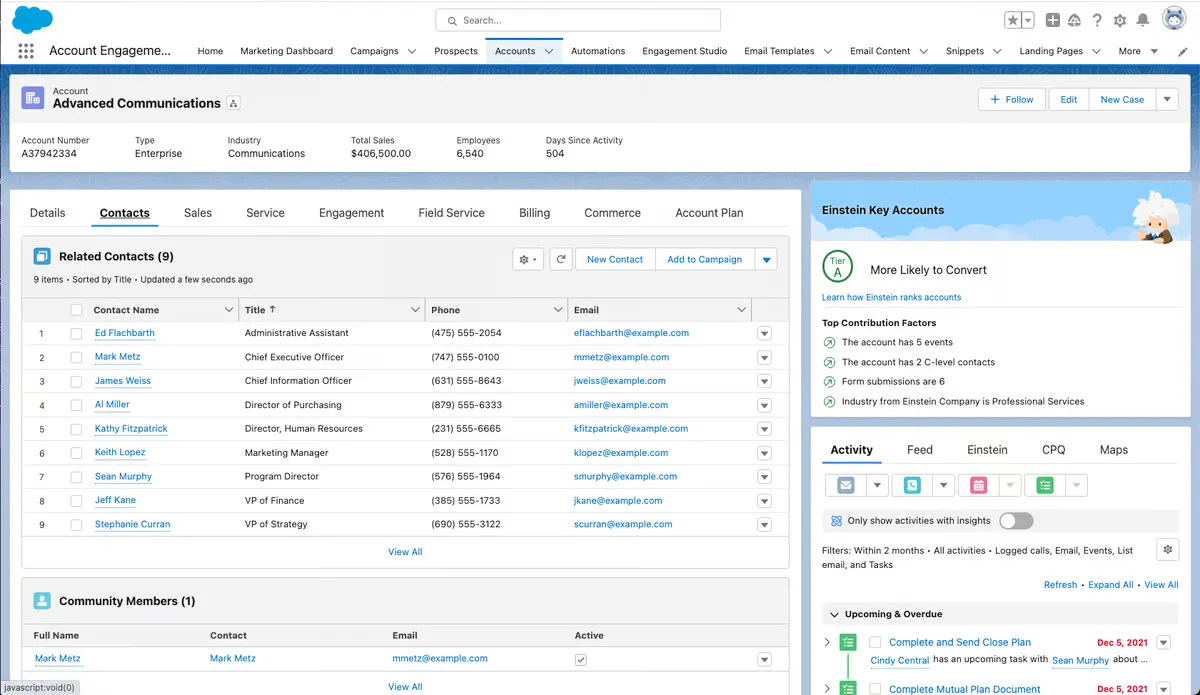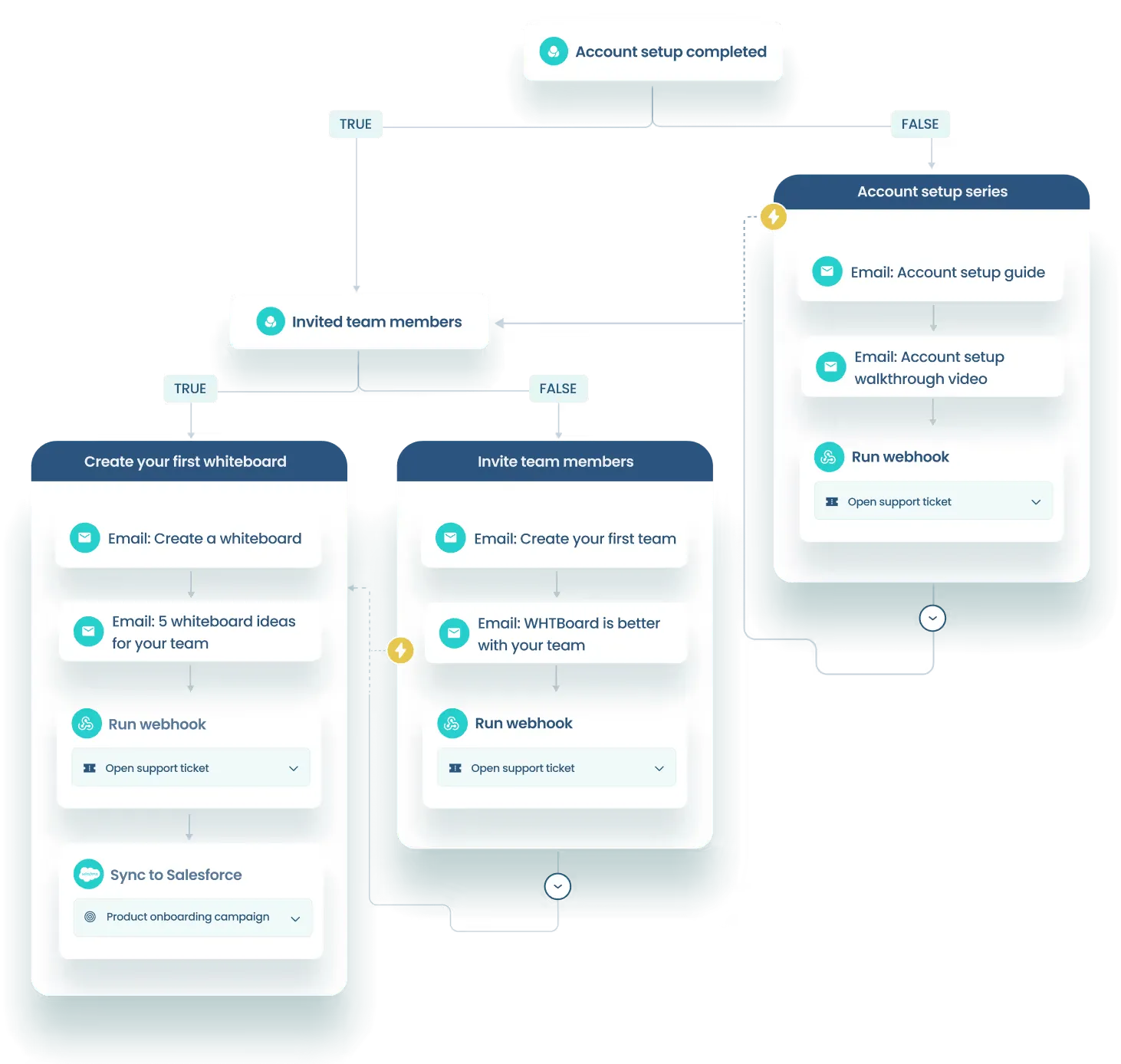3 HubSpot Alternatives from a Former HubSpot User (2025 Edition)
HubSpot has long been a popular marketing automation solution, especially for smaller businesses. It definitely has a smooth user experience, a wealth of resource libraries, and decent features for a free or starter plan.
However, many businesses are finding it increasingly limiting as they scale, facing higher costs, and a lack of depth in features. With evolving needs, teams are now looking for more advanced, customizable alternatives.
Why Are B2B SaaS Companies Looking for HubSpot Alternatives?
If you’ve used HubSpot, you’re probably familiar with some of the reasons:
- Steep Pricing Tiers: As companies grow, HubSpot’s pricing becomes a concern. The platform charges based on contact tiers, often forcing businesses to pay significantly more as their customer base expands.
- Add-Ons: While the tons of third-party integrations can be helpful, it can also be overkill and expensive. For example, the Professional tier users have to pay additional for reporting features like ‘Customer Journey Analytics’ on top of their $890 monthly plan price.
- Limited Customization: HubSpot works well for small businesses but lacks the deep customization that larger B2B SaaS companies require for complex workflows.
- Product Data Limitations: HubSpot lacks native integrations with data warehouses and Customer Data Platforms (CDPs), making it harder to leverage product data for personalization and targeted campaigns. Without these integrations, creating a holistic view of your customer is challenging.
What Are the HubSpot Alternative Options?
Here are three popular HubSpot alternatives that better suit growing B2B SaaS companies:
1. Marketo

Marketo has been a popular choice in the marketing automation landscape, especially for larger B2B companies. Enterprises favored Marketo for the longest time for various reasons despite several challenges.
Why Marketo?
- Automation Capabilities: Marketo allows for customized workflows, making it ideal for large businesses with complex, multi-stage, and cross-channel marketing campaigns for leads. Marketo users often subscribe to additional tools for customer communications.
- Advanced Reporting: Offers more granular analytics and advanced reporting capabilities.
- Scalability: Though Marketo was built for companies with massive customer bases, scaling up is possible but an expensive affair.
However, Marketo has a ton of drawbacks not limited to:

- Legacy Tool: Marketo can’t integrate with your product data sources like data warehouses or CDPs making it a not suitable solution for modern marketing needs.
- Expensive to Scale: Pricing increases rapidly as your contact database grows. A lot of their customers are considering Marketo alternatives.
- Lack of Innovation: The platform hasn’t evolved much, leaving users stuck with outdated features.
- Complexity and Training Needs: Marketo has a steep learning curve, requiring specialized expertise.
2. Pardot (Salesforce Marketing Cloud)

Pardot, part of Salesforce’s Marketing Cloud, is another alternative for companies already using Salesforce or seeking tighter integration between sales and marketing data.
Why Pardot?

- Streamlined Features: While Pardot doesn’t offer the same breadth of features as HubSpot, its streamlined functionality makes it a good choice for companies that want simplicity and efficiency in marketing automation.
- Simplified Contracts: As a subsidiary of Salesforce, Pardot benefits from simplified contracts and pricing for businesses already using Salesforce.
However, like Marketo, Pardot can be limiting in terms of product data integration and lacks deep customization for more complex use cases. Additionally, there’s some uncertainty around Pardot’s future. There are rumors of Salesforce shutting down Pardot in a multi-year phase out. This uncertainty, coupled with reasons already mentioned, makes Pardot a risky choice for companies looking for future-proof marketing solutions.
3. Inflection

Inflection is a modern marketing automation platform built by former Marketo executives. It’s built to overcome the limitations of lack of product data integration with marketing automation platform.
Why Inflection?
- Real-Time Product Data Integration: Inflection allows marketers to activate product data in real-time to trigger automated workflows. You can create personalized, action-based messaging based on user behavior—a feature that HubSpot and other marketing automation tools currently lack.
- Unique Pricing: Inflection offers the most logical of marketing automation pricing. You are charged based on the number of contacts you actively market to, not the size of your database. This eliminates the need to cap your database when your business grows.
- User-Friendly Interface: Inflection has a streamlined interface that balances ease of use with powerful features.

Inflection stands out because it allows B2B SaaS companies to integrate their data warehouse and CDPs, creating a unified customer view and allowing for truly personalized marketing campaigns. It’s a future-ready solution that grows with your business needs.
Why Inflection is the Ideal HubSpot Alternative in 2025
Choosing the right alternative to HubSpot and the right marketing automation solution depends on your specific needs. If you’re looking for a platform that can leverage product data, provide deeper customization, and scale with your company without skyrocketing costs, Inflection is the answer. Unlike HubSpot’s all-in-one generic solution that may cost an arm and leg as you scale, Inflection offers a more practical and flexible approach to market to both prospects and customers from the same platform.
Ready to explore a better option? Request a marketing automation demo today.

%201.webp)





